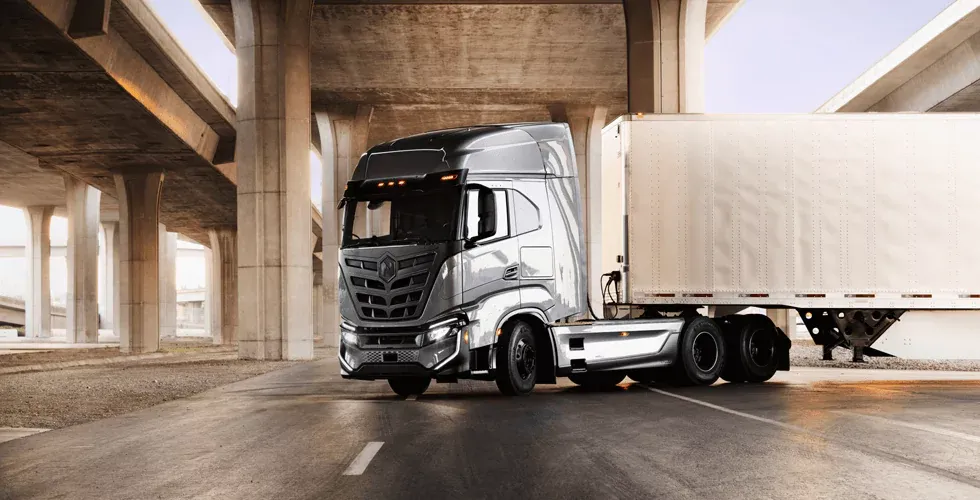
Economic Benefits of Electric Trucks for Fleet Owners: A Detailed Analysis
The transition from diesel to electric trucks presents numerous long-term financial advantages for fleet owners. This paper explores these benefits in detail, focusing on fuel savings, government incentives, and tax breaks, bolstering the case for electric vehicle (EV) adoption in commercial operations.
Fuel Savings
Electric trucks offer significant reductions in fuel costs compared to diesel trucks. According to a study by the International Council on Clean Transportation (ICCT), electric trucks can reduce energy costs by up to 70% depending on the electricity prices and the efficiency of the vehicle (ICCT, 2020). This is due to the higher energy efficiency of electric motors, which convert approximately 60% of the electrical energy from the grid to power at the wheels, compared to about 20-30% efficiency of diesel engines (U.S. Department of Energy, 2021). For fleet owners, this translates into substantial cost savings over the life of the vehicle.
Government Incentives
Many governments worldwide are providing financial incentives to promote the adoption of electric vehicles in commercial fleets. These incentives include grants, rebates, and subsidies to offset the higher initial purchase prices of EVs. For example, the U.S. Department of Energy’s Clean Cities program offers various grants to fleet owners for purchasing electric trucks and installing necessary charging infrastructure (DOE, 2021). Similarly, the California Air Resources Board (CARB) administers the Hybrid and Zero-Emission Truck and Bus Voucher Incentive Project (HVIP), which provides vouchers to reduce the cost of electric trucks at the point of sale (CARB, 2022).
Tax Breaks and Deductions
Electric trucks are eligible for a variety of tax breaks and deductions that improve their total cost of ownership. The U.S. federal government, for instance, offers a tax credit up to $7,500 for the purchase of a new electric vehicle, under the Electric Vehicle Tax Credit system (IRS, 2021). Additionally, several states offer further deductions and exemptions from sales taxes, property taxes, and other fees, making electric trucks more financially attractive to fleet owners.
Reduced Maintenance Costs
Electric trucks have fewer moving parts than diesel trucks, leading to lower maintenance costs. A report by the Massachusetts Institute of Technology (MIT) suggests that maintenance costs for electric trucks could be 30% lower than those for diesel trucks (MIT, 2019). This reduction is primarily due to the absence of engines, transmissions, and exhaust systems, which are the most maintenance-intensive components of traditional trucks.
Operational Efficiency and Lifecycle Analysis
The operational efficiency of electric trucks, including longer vehicle lifespans and reduced downtime, also contributes to their economic benefits. Studies indicate that electric trucks can have a longer operational life due to less wear and tear on critical components (BloombergNEF, 2020). Additionally, the ability to recharge electric trucks during driver rest periods can lead to better utilization of assets and reduced operational costs.
Conclusion
The economic benefits of electric trucks are clear and quantifiable. By transitioning to electric fleets, businesses can achieve considerable savings in fuel costs, take advantage of generous government incentives and tax breaks, and reduce maintenance and operational costs. As the technology continues to evolve and the supporting infrastructure expands, the case for electric trucks becomes increasingly compelling for fleet owners looking to improve their financial performance and sustainability practices.
References
- ICCT (2020). “Electric Truck Market Development.” International Council on Clean Transportation.
- U.S. Department of Energy (2021). “Electric Vehicle Benefits.” Energy.gov.
- California Air Resources Board (CARB, 2022). “Hybrid and Zero-Emission Truck and Bus Voucher Incentive Project (HVIP).”
- IRS (2021). “Electric Vehicle Tax Credits.” IRS.gov.
- MIT (2019). “Impacts of Electric Vehicles on Energy and Transportation.” Massachusetts Institute of Technology.
- BloombergNEF (2020). “Electric Vehicle Outlook 2020.” Bloomberg New Energy Finance.